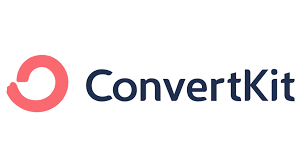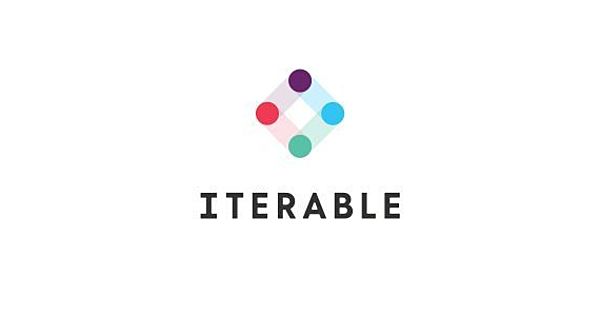Welcome to our detailed exploration of two standout email marketing tools: ConvertKit and Iterable. In 2024, the digital marketing landscape is more competitive than ever, making the right choice of tools not just a convenience but a necessity. Whether you’re a seasoned marketer, a thriving business owner, or just dipping your toes into the vast ocean of email marketing, this article is tailored for you. We’re diving into a head-to-head comparison of ConvertKit and Iterable, dissecting their features, usability, and effectiveness. So, buckle up, and let’s embark on this enlightening journey to discover which tool can best catapult your email marketing strategy to new heights.
| ConvertKit | Iterable |
|---|---|
 |  |
| G2 Score – 4.4 out of 5 stars | G2 Score – 4.4 out of 5 stars |
| TrustRadius Score – 8.8 out of 10 | TrustRadius Score – 8.6 out of 10 |
User Experience and Interface: Your Daily Dashboard
Think of the user interface (UI) of your email marketing tool as the front door to your digital marketing home. It’s where you’ll spend most of your time crafting campaigns, analyzing data, and strategizing your next moves. Let’s peel back the layers of ConvertKit and Iterable to see which one invites you in with open arms and which one makes you feel right at home.
ConvertKit: Simplicity and Clarity Combined
ConvertKit greets you with a UI that’s a breath of fresh air. It’s clean, uncluttered, and intuitive. Navigating through ConvertKit’s dashboard is like walking through a well-organized home where everything has its place. The platform takes pride in its simplicity, making it a perfect starting point for beginners, yet it’s robust enough to satisfy the needs of the most advanced users.
When it comes to creating email campaigns, ConvertKit makes it a smooth ride. The visual editor is user-friendly, allowing you to drag and drop elements with ease. This simplicity in design doesn’t mean a compromise in functionality. You get all the tools needed to create engaging and personalized emails, without the clutter or complexity that can overwhelm you.
Iterable: Sophistication Meets Modernity
Iterable, on the other hand, presents a more modern and feature-rich interface. It’s like stepping into a high-tech command center where you have control over a vast array of marketing tools. The UI is sleek and, while it might have a steeper learning curve than ConvertKit, it’s designed to cater to the needs of marketers looking for depth and scalability in their tools.
Creating campaigns in Iterable is like having a palette with more colors. It offers advanced segmentation, dynamic content, and AI-powered tools, providing seasoned marketers with the sophistication needed to craft highly targeted and effective campaigns. However, this complexity might be daunting for beginners or those who prefer a more straightforward approach.
The Daily User Experience
Your daily interaction with your email marketing tool should be empowering, not exhausting. Both ConvertKit and Iterable offer distinct user experiences, but they cater to different user preferences and needs.
ConvertKit is ideal for those who appreciate clarity and simplicity. It’s perfect for users who want to focus more on content and less on navigating a complex tool. The ease of use doesn’t strip away its power; it rather presents it in a more digestible format.
Iterable is suited for users who are not afraid to dive into a more complex system. It’s for the marketer who loves to explore advanced features and has a penchant for data-driven, sophisticated campaign strategies.
In the arena of user experience and interface, ConvertKit and Iterable serve different masters. ConvertKit wins if you’re after an easy-to-use, straightforward tool that simplifies your email marketing journey. Iterable, with its advanced features and modern interface, is the go-to for those who seek depth, sophistication, and scalability in their email marketing efforts.
Email Automation: Crafting Personalized Subscriber Journeys
Email automation is like setting up dominoes; once you’ve strategically placed them, a single touch can create an impactful chain reaction. It’s about sending the right message, to the right person, at the right time, automatically. Let’s explore how ConvertKit and Iterable handle this vital feature.
ConvertKit: Streamlining Automation
ConvertKit simplifies the automation process while still offering powerful capabilities. Its automation workflow is intuitive, making it easy to set up triggers based on subscriber actions. You can create tailored sequences for different segments of your audience, ensuring each subscriber receives a personalized journey.
With ConvertKit, creating an automated email series is like telling a story. You can effortlessly plot out the subscriber journey from welcome emails to engagement sequences and beyond. This tool is ideal for those who want to build personalized, yet straightforward, automated email sequences without getting bogged down by overly complex functionalities.
Iterable: The Automation Maestro
Iterable takes automation to a different level. It’s more like orchestrating a symphony with multiple instruments. The platform offers advanced segmentation capabilities, dynamic content personalization, and AI-driven optimization. Iterable allows you to craft highly sophisticated and targeted automated campaigns.
Iterable is the go-to for those who want to delve deep into the possibilities of email automation. It offers the tools to create intricate subscriber paths, experiment with A/B testing, and leverage behavioral data for personalized content. This complexity, while powerful, may be overwhelming for beginners or those who prefer a more streamlined approach.
Automation: Enhancing Efficiency and Relevance
The right automation tool should not only save time but also increase the relevance and effectiveness of your email campaigns. Both ConvertKit and Iterable offer solutions, but with different approaches and levels of complexity.
ConvertKit is best suited for users who value efficiency and simplicity in their automation. It’s perfect for small to medium-sized businesses or individuals who want to create effective automated campaigns without needing a deep dive into technical details.
Iterable is tailored for larger businesses or advanced marketers who require a more granular level of control over their automation. It’s ideal for those who prioritize precise targeting and sophisticated campaign structures.
In the world of email automation, ConvertKit and Iterable cater to different needs. ConvertKit offers an accessible and user-friendly approach, perfect for those who want to set up effective automation without complexity. Iterable, with its advanced features, is the choice for marketing professionals who seek depth, precision, and the ability to fine-tune every aspect of their automated campaigns.
Integration Capabilities: Expanding Your Marketing Ecosystem
In the digital marketing world, having a tool that integrates smoothly with other software is like having a team where every player speaks the same language. It’s about creating a cohesive, efficient workflow. Let’s examine how ConvertKit and Iterable stand in terms of integration capabilities.
ConvertKit: The Harmonious Integrator
ConvertKit understands the importance of being part of a larger ecosystem. It integrates well with a wide array of platforms, including e-commerce sites, CRM systems, and even membership platforms. This compatibility makes ConvertKit a versatile player in your marketing toolkit.
With ConvertKit, you can synchronize your email marketing efforts with other aspects of your business. Whether it’s collecting leads from your website, tracking customer interactions, or even managing your online store, ConvertKit ensures that all these tools work together harmoniously.
Iterable: The Advanced Integration Champion
Iterable takes integration a step further. It is designed to function seamlessly in a complex marketing tech stack, offering integrations with major CRM systems, analytics tools, and other advanced marketing platforms.
Iterable is the ideal choice for businesses that have a more sophisticated tech ecosystem. Its ability to integrate with advanced tools and systems makes it a powerful ally for large-scale operations and businesses that rely heavily on data-driven marketing strategies.
Integration as a Business Strategy
The ability to integrate effectively is more than just a convenient feature; it’s a strategic asset. It determines how well your email marketing efforts can align and synergize with other areas of your business.
ConvertKit is an excellent choice for businesses that need a tool to integrate effortlessly with a variety of commonly used platforms. It’s suited for small to medium-sized businesses or content creators who require a reliable, no-fuss integration to streamline their workflows.
Iterable is ideal for enterprises and businesses that operate with a complex array of marketing and analytics tools. It’s designed for those who need their email marketing tool to fit seamlessly into a sophisticated, data-driven marketing strategy.
In terms of integration capabilities, both ConvertKit and Iterable excel, but in different contexts. ConvertKit offers simplicity and versatility, making it a great choice for a wide range of common business applications. Iterable, with its advanced integration options, is the go-to for larger businesses or those with a more complex tech infrastructure.
Analytics and Reporting: Uncovering Insights for Better Engagement
In the world of email marketing, analytics and reporting are like the compass and map guiding your journey. They provide crucial insights into what works, what doesn’t, and how you can improve. Let’s dive into how ConvertKit and Iterable approach analytics and reporting.
ConvertKit: Simple Yet Insightful Analytics
ConvertKit offers a straightforward approach to analytics. It provides clear, easy-to-understand metrics on email opens, click rates, subscriber growth, and engagement. This simplicity in data presentation is perfect for those who need quick insights without getting lost in a sea of numbers.
ConvertKit’s reporting focuses on key metrics that matter most to email marketers. It allows you to track the performance of individual campaigns and understand your audience’s behavior, giving you the data needed to refine your strategies for better engagement and conversion.
Iterable: Advanced Analytics for In-Depth Understanding
Iterable goes several steps further in the analytics realm. It offers a more comprehensive suite of reporting tools that delve deep into subscriber behavior, campaign performance, and much more.
Iterable is like a high-powered telescope, offering a granular view of your email marketing universe. You can segment data in various ways, conduct A/B testing, and leverage advanced analytics to gain a deep understanding of your audience and the effectiveness of your campaigns.
Tailoring Strategies with Data
The right use of analytics helps in tailoring your email marketing strategies for maximum impact. Both ConvertKit and Iterable offer valuable insights, but their approach and depth differ significantly.
ConvertKit is ideal for those who want clarity and simplicity in their analytics. It’s perfect for small businesses, bloggers, and creators who need straightforward insights to make informed decisions about their email marketing efforts.
Iterable is suited for marketers and businesses that thrive on data-driven decisions. It’s the tool for those who want to dive deep into analytics, uncovering detailed insights to fine-tune every aspect of their email marketing strategy.
In the domain of analytics and reporting, ConvertKit offers a more user-friendly and straightforward approach, making it accessible to a wider range of users. Iterable, with its advanced and detailed analytics, caters to those who require a more in-depth analysis to inform their complex marketing strategies.

Related: Check out our free SEO suite

Pricing and Value: Balancing Cost with Features
Pricing is a critical factor in choosing an email marketing tool. It’s about balancing the scales between the features you need and the price you’re willing to pay. Let’s break down the pricing structures of ConvertKit and Iterable to see which platform offers the best bang for your buck.
| ConvertKit | Free Plan: Offers basic features for up to 1,000 subscribers, including email broadcasts, landing pages, and forms. Creator Plan: Starting at $29/month for up to 1,000 subscribers, including automation and third-party integrations. The price increases with more subscribers. Creator Pro Plan: Starting at $59/month for up to 1,000 subscribers, adding advanced features like newsletter referral system, subscriber scoring, and advanced reporting. |
| Iterable | Iterable does not publicly list its pricing, as it typically offers custom pricing based on the specific needs of a business. The platform is designed for larger companies with advanced needs in cross-channel marketing campaigns, including email, SMS, push notifications, and more. Features usually include workflow automation, segmentation, A/B testing, and personalized messaging. Interested users need to contact Iterable directly for a customized quote based on their scale and requirements. |
ConvertKit: Flexible Pricing for Different Needs
ConvertKit’s pricing model is designed to cater to a range of users, from beginners to advanced marketers. It offers a free plan for starters, which is great for those just dipping their toes into email marketing. As your needs grow, so does the plan, with prices scaling based on the number of subscribers.
While ConvertKit’s plans can be a bit pricier compared to some other tools, you’re paying for a user-friendly interface, reliable automation, and excellent customer support. It’s an investment in a tool that values simplicity and effectiveness, making it ideal for content creators, bloggers, and small to medium-sized businesses.
Iterable: Custom Pricing for Advanced Needs
Iterable operates on a custom pricing model, which means the cost is tailored to the specific needs and scale of your business. This approach is common for platforms offering advanced features and is tailored to larger businesses or those with complex marketing needs.
With Iterable, you’re investing in a tool that offers sophisticated features like advanced segmentation, detailed analytics, and extensive integrations. The custom pricing reflects its advanced capabilities, making it a fit for larger enterprises or businesses that require a comprehensive, data-driven email marketing solution.
Assessing the Long-Term Value
When considering pricing, it’s essential to look beyond the immediate cost and assess the long-term value the tool brings to your marketing efforts. ConvertKit’s pricing can be seen as an investment in a tool that grows with you. Its scalability makes it a valuable asset for businesses and creators who plan to expand their reach and deepen their engagement with their audience.
Iterable’s custom pricing model means you pay for what you need, making it a viable option for businesses with specific, advanced requirements. It’s an investment in a sophisticated tool that aligns with intricate marketing strategies and large-scale operations.
In the pricing and value comparison, ConvertKit and Iterable cater to different market segments. ConvertKit offers straightforward, scalable pricing ideal for individuals and small to medium businesses. Iterable, with its custom pricing, is suited for larger organizations or those with specific, advanced marketing needs.
Customer Support: Navigating Your Email Marketing Journey with Ease
In the dynamic world of email marketing, having responsive and knowledgeable customer support is like having a reliable co-pilot. It’s about ensuring that your journey is smooth, and you have the help you need when you encounter turbulence. Let’s see how ConvertKit and Iterable stack up in terms of customer support.
ConvertKit: Personalized Support at Your Service
ConvertKit is known for its exceptional customer support. It’s like having a friend in the email marketing world who’s always ready to help. They offer various channels of support, including email, live chat, and an extensive knowledge base.
What sets ConvertKit apart in the realm of customer support is its commitment to user success. The support team is not just there to solve technical problems; they are dedicated to helping you make the most out of the platform. Whether it’s guiding you through campaign setup, helping you understand analytics, or offering best practices, ConvertKit’s support team is there to ensure your success.
Iterable: Professional Support for Complex Needs
Iterable provides robust customer support, tailored to its more complex platform. The support team is knowledgeable, especially when it comes to handling inquiries related to Iterable’s advanced features.
Iterable’s customer support is structured to cater to a diverse user base, from marketers who are just starting out to those who are deeply entrenched in data-driven strategies. This means that whether you need basic guidance or advanced troubleshooting, Iterable’s support team has the expertise to assist you.
The Impact of Support on Your Email Marketing
Good customer support can significantly influence the effectiveness of your email marketing strategy. It’s about more than just fixing issues; it’s about growing and optimizing your campaigns. ConvertKit’s customer support is ideal for those who value approachability and ongoing assistance. It’s perfect for users who want a support team that not only solves problems but also contributes to their overall marketing strategy.
Iterable’s customer support is suited for users who need expert assistance with more complex issues. It’s a good fit for businesses that require a high level of technical support and have sophisticated email marketing strategies.
In the customer support showdown, ConvertKit offers a more personalized and approachable support experience, making it ideal for a wide range of users. Iterable provides professional and expert support, catering to users with advanced needs and more complex queries.
Conclusion
ConvertKit stands out as a user-friendly, efficient, and approachable tool. It shines in its simplicity, making it an excellent choice for content creators, small businesses, and those who are starting their email marketing journey. Its straightforward pricing model, combined with an intuitive user interface and responsive customer support, makes it a reliable partner for growing your audience and enhancing engagement. ConvertKit’s focus on user experience and its commitment to providing personalized support ensures that users not only have a tool but also a guide through their email marketing journey.
Iterable, on the other hand, emerges as a powerhouse for more advanced users. It is tailored for larger businesses or those with intricate, data-driven marketing strategies. Iterable’s sophisticated automation capabilities, comprehensive analytics, and robust integration options make it a formidable tool for those who want to delve deep into personalized marketing campaigns. Its custom pricing model and professional support cater to the needs of enterprises and advanced marketers who require a high level of customization and technical proficiency.
The decision between ConvertKit and Iterable ultimately hinges on your specific needs, the scale of your operation, and your proficiency in email marketing. If you seek simplicity, ease of use, and excellent customer support, ConvertKit is the way to go. However, if your focus is on advanced features, in-depth analytics, and you have a larger, more complex operation, Iterable will serve you better. In 2024, as email marketing continues to evolve and play a crucial role in digital marketing strategies, both ConvertKit and Iterable stand as competent tools, each capable of propelling your email marketing efforts to new heights. Your choice will shape how you engage with your audience, the effectiveness of your campaigns, and ultimately, the growth and success of your business or personal brand in the digital realm.
Read Next
- ConvertKit vs Mad Mimi: The Best Email Marketing Tool for 2024
- ConvertKit vs SendPulse: The Best Email Marketing Tool for 2024
- ConvertKit vs MoonMail: The Best Email Marketing Tool for 2024
- ConvertKit vs Keap: The Best Email Marketing Tool for 2024
- ConvertKit vs Emma: The Best Email Marketing Tool for 2024





















Comments are closed.